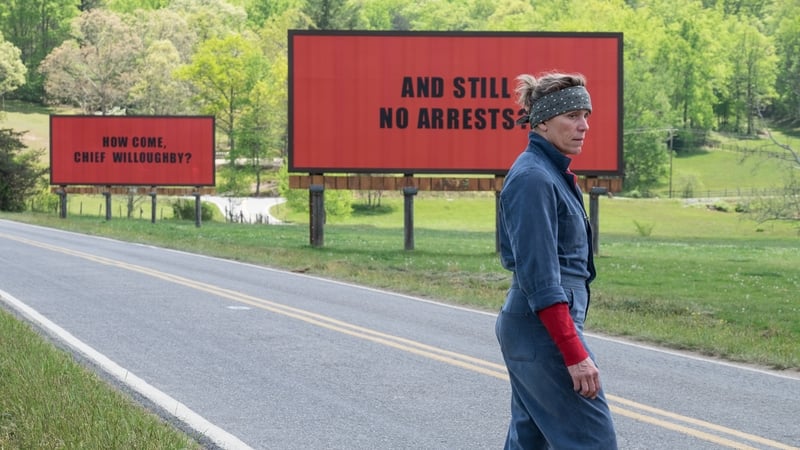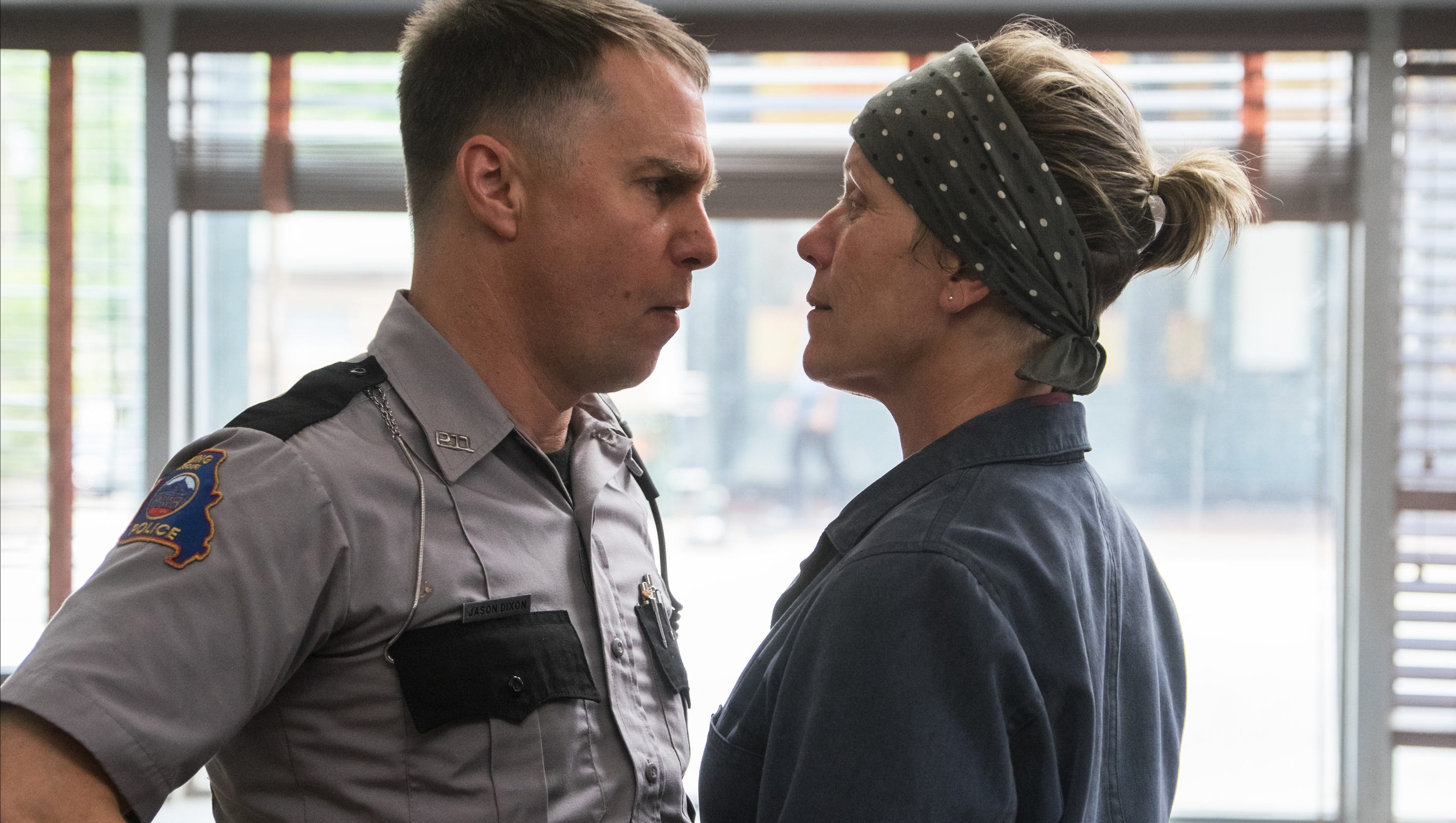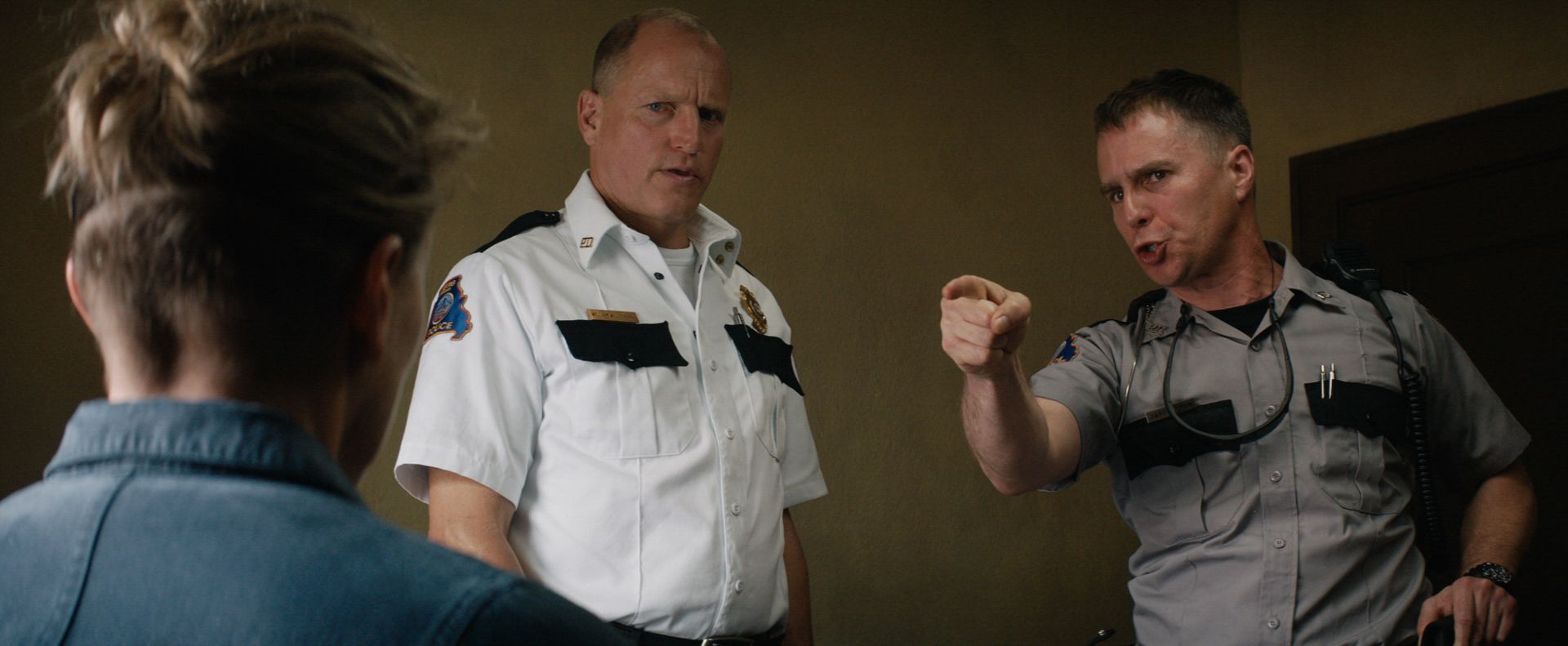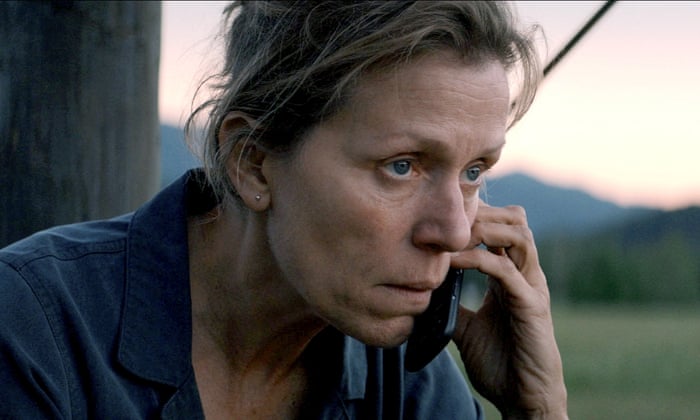Director Martin McDonagh's filmography has a bit of a problem. Every film he makes stands in the shadow of In Bruges, quite possibly one of the best films of the 2000s. While those in the know will be familiar with McDonagh for his six plays that form two trilogies based in and around County Galway, Ireland (The Leenane Trilogy and The Aran Islands Trilogy, respectively), McDonagh really broke into mainstream consciousness with In Bruges, a genuine masterpiece of screenwriting and acting. His less assured follow-up, Seven Psychopaths, saw him break away from the Eurocentric, in particular Irish, world of his previous works. His latest film, Three Billboards Outside Ebbing, Missouri, which looks set to be his biggest commercial breakthrough yet, sees him move even further away with no Colin Farrell in tow this time. With an all-American cast, can McDonagh's sensibilities translate to somewhere as middle-U.S.A. as Missouri?
The good news is that, yes indeed they do. Keeping the same melancholic atmosphere of In Bruges, Three Billboards is a finely crafted, slow-burner drama that explores, in part, issues of anger, mortality, grief and vengeance. If that sounds a bit dry and austere, McDonagh laces the script with his trademark black comedy style, balanced by a brilliant cast of veteran actors. And just when you think the film is going to take the conventional route, the narrative completely shifts and begins to veer into some genuinely unexpected and morally grey material.
Several months have passed since the rape murder of local Ebbing girl Angela Hayes with no culprit found. Her increasingly frustrated mother Mildred (France McDormand) makes a bold move by renting out three billboards and putting up a controversial message calling out the police, in particular chief-of-police / town hero William Willoughby (Woody Harrelson) (Who is dying of cancer), on the lack of action on the case. Things get even messier when Willoughby's second-in-command, Dixon (Sam Rockwell), gets involved - a pampered, racist mother's boy with a penchant for violence and lack of thought for the consequences of his actions. Soon, Mildred finds herself as the town pariah, largely loathed due to her own internalised anger and clear, unstoppable goal of getting the police into action - no matter the cost...
Three Billboards is a film that certainly doesn't shy away from the uglier side of grief. Frances Dormand is phenomenal in the lead role of Mildred. Every action she takes clearly pains the character but is overridden by her resolve for action. This just leaves a sharp, furious husk of a character. It soon becomes clear that all her actions have taken a clear toll on the person. McDonagh gives some of his best lines of dialogue and monologues to Mildred - the highlight being a particularly incendiary piece of dialogue towards the local priest.
However, things start to get interesting when Hayes and police chief Willoughby begin to find some common ground together. A kind of odd understanding towards each other is formed. Harrellson is equally great in a tender performance that ultimately doesn't paint the police as the bad guys - just stuck in the same mess. That said, one character ironically becomes a better cop when he is stripped of his badge. Which brings me onto Sam Rockwell's character, Dixon. I have heard some controversy surrounding this character - a racist low-IQ cop we are ultimately meant to sympathise with but I would argue it runs a bit deeper than that and works as part of the wider thematic framework of the film. His actions throughout the film are shocking, down right unforgivable, but Rockwell plays the charactet as mis-guided, confused and enraged for reasons he can't quite work out. Both Dixon and Mildred find themselves on a similar path before converging together - moving past their uncontrollable resentment towards the injustices of the world. The character arc Dixon goes in the space of two hours is something to behold and a testament to Rockwell's abilities.
McDonagh himself is a master of taking absurd acts of violence, cruel twists, genuine emotional sucker punches and contrasting comedy with tragedy. His camera lingers on the scenes, like voyeur letting the events in front of the audience play out. We are powerless to interfere with the on screen violence, thus making us complicit in the actions of the characters. The cartoony violence of the first half of the film gives way to something much more brutal and realistic as the film progresses.
Of course, all this feels fairly timely. Anger is a huge part of the make up of our everyday lives. Heck, those who claim to be serving our best interests, in particular in America, seem to be giving in pure, unadulterated rage in the decision making of leading a country. Thus, I think Three Billboards can be described as a timely film examining how our negative emotions are directed at each other, rather than the system in place that continually lets us down. Perhaps Three Billboards is an early example of Trump-era cinema?
I do feel that some elements go a little bit too far, in particular in the comedy department (which, fortunately, make up a small part of the film). Some of it is a litter broader than the McDonagh of the past. For example, I know Mildred's ex-husband's new girlfriend's intelligence is played a bit tongue in cheek but I feel these scenes and the comedy are a bit drawn out. On the other hand, some parts don't go far enough. A few of the side characters get a bit lost in the fray and randomly appear again in scenes when they are needed (e.g. Peter Dinklage's character). And arguably, the only misstep of casting is Willoughby's wife, who never quite gels into the larger frame of the film - where this is the fault of the actor, the script or the director, it's hard to say. Ultimately, the side characters, while briefly featured, are there to mostly serve the emotional arcs of the main characters. So, in the contact of the narrative, it's fine; it's a more sham to see some genuinely talented actors underused.
Despite this, Three Billboards crafts a fine spell that manages to find new ways to surprise with its deft script, undercuttings of black comedy and some all-time great performances. Is it In Bruges levels of brilliance? Not quite but with it dealing in many of the same themes as that film it is more than a worthy successor. It's not exactly a drama for everyone but judging by the sold out screening at a weekday night screening (we tried seeing it our local cinema, The Savoy, last weekend but both the Saturday and Sunday screenings were completely sold out) it's clearly getting plenty of people into the cinema and thinking about the film. It's rich, wonderfully acted and has plenty to mull over on the journey home; perhaps for quite a while after that as well.
I did like how there was almost a mini-HBO alumni reunion going on in the film - Peter Dinklage from Game of Thrones, John Hawkes from Deadwood (my favourite TV show by-the-by) and Clarke Peters from The Wire (my second favourite TV show) (Peters will always be Lester Freamon...). It just shows how far the TV landscape has come in the past couple of decades where actors who made their names on TV are also making it in film (a rare occurrence before the advent of the Golden Age of TV).





No comments:
Post a Comment